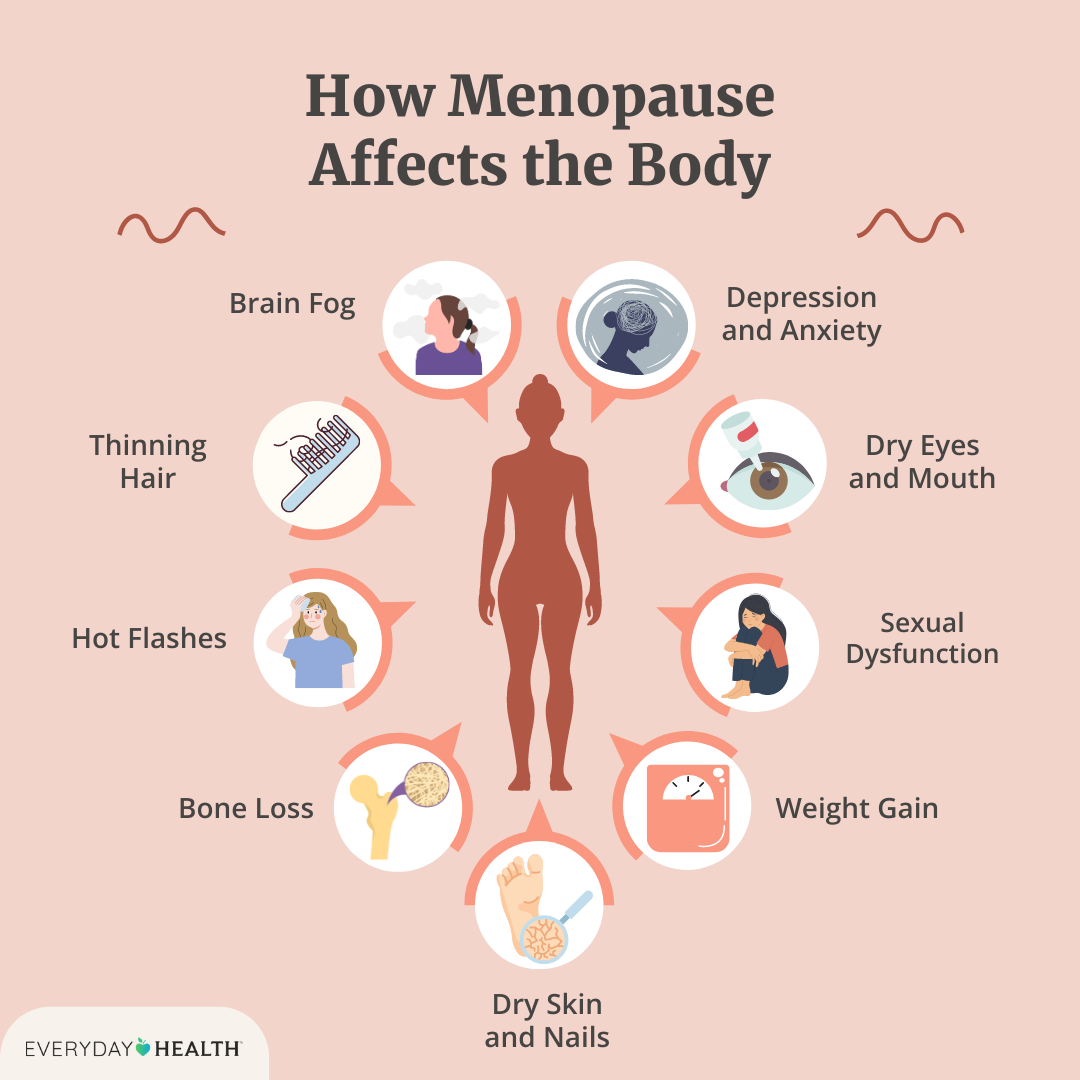Keepers at Home-Menopause

Please note our content is intended solely for informational purposes and should not be used in place of official medical advice.
What is Menopause?
Menopause is the time that marks the end of your menstrual cycles. It's diagnosed after you've gone 12 months without a menstrual period. Menopause can happen in your 40s or 50s.
The traditional changes we think of as “menopause” happen when your ovaries no longer produce high levels of hormones. Your ovaries are the reproductive glands that store and release eggs. They also produce the hormones estrogen and progesterone. Together, estrogen and progesterone control menstruation. Estrogen also influences how your body uses calcium and maintains cholesterol levels in your blood. As menopause nears, your ovaries no longer release eggs, and you’ll have your last menstrual cycle.
There are three stages of menopause: perimenopause, menopause and postmenopause.
- Perimenopauseis the time leading up to menopause. It describes a time when hormones start to decline and menstrual cycles become erratic and irregular. You may start to experience side effects of menopause, like hot flashes or vaginal dryness.
- Menopause occurs when you’ve stopped producing the hormones that cause your menstrual period and have gone without a period for 12 months in a row. Once this has occurred, you enter postmenopause.
- Postmenopause is the time after menopause has occurred. Once this happens, you're in postmenopause for the rest of your life. People in postmenopause are at an increased risk for certain health conditions like osteoporosis and heart disease. Once you enter postmenopause, you're in this stage for the rest of your life. Your hormone levels will remain low and you'll no longer have a monthly period.
Symptoms of Menopause:-
Hot Flashes and Night Sweats:- Hot flashes are the sudden feeling of intense warmth, usually around the face and upper body. Your face and chest may also turn red, and you can perspire heavily. Some women also experience a rapid heartbeat. When it ends, you might feel chilled. Hot flashes is the number one sign of menopause.
Slowed Metabolism and Weight Gain:- During menopause, many women experience the dreaded “menopot” or “menopause spread,” gaining weight usually in the abdomen.
Depression, Anxiety, Mood Swings or Irritability:- lack of sleep can cause mood disturbances.
Insomnia and Sleep Disruptions:-Can’t fall asleep or you are waking up several times during the night.
Hair Loss and Brittle Nails:- When estrogen and progesterone drops it causes thinning hair during menopause; some encounter an extreme form known as female pattern hair loss. Your nails may become ridged and brittle.
Sexual Dysfunction, Desire Issues and Change in sex drive:- Many women find that with menopause comes some unpleasant changes in their vaginas, which can make sexual activity mildly difficult to extremely painful. Women report a feeling of vaginal tightness during penetration, and are at higher risk for tearing and bleeding during intercourse.
Bone Loss and Osteoporosis Risk:- After age 35, loss outpaces creation, causing overall bone loss. When menopause hits, the demineralization process speeds up, leading some women to develop osteoporosis (brittle, fragile bones).
Dry Skin and Other Skin Problems:- You may also develop acne and rashes, and find that wounds heal much more slowly.
Dry Eyes and Dry Mouth:- Menopausal women often suffer from dry, inflamed, irritated eyes, and their mouths can also become dry and tacky. Mouth dryness can be so severe that it can affect oral health. Lack of saliva can lead to increase in cavities, periodontal disease, gingivitis, and more.
Memory Issues and Problems With Concentration:- Your cognitive function may go a little screwy. Words are harder to retrieve, you forget why you walked into a room, and darned if you know where your keys ended up.
Urinary urgency and Urinary Incontinency (a pressing need to pee more frequently). Urinary incontinence is a condition that impacts many people’s lives. When you have incontinence, you may experience bladder control issues and leak urine. This leakage is often uncontrollable and can negatively impact your life.
Natural Remedies to Manage Menopause:-
- Eat foods rich in calcium and vitamin D
- Maintain a moderate weight
- Regular exercise, meditation and other relaxing activities can help with depression and other side effects of postmenopause.
- Eat lots of fruit and vegetables
- Eat protein-rich foods
- Drink enough water
- Eating a diet rich in phytoestrogens (plant-based sources of estrogen) such as whole-grain cereals, flaxseed, chickpeas and legumes. Reducing caffeine and alcohol intake has also been shown to help.
- Avoid lots of salt or sugar and limit your consumption of alcohol.
- Reduce processed foods
https://my.clevelandclinic.org/health/diseases/21837-postmenopause


